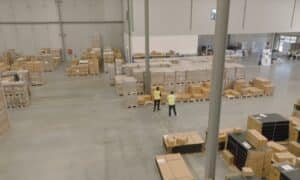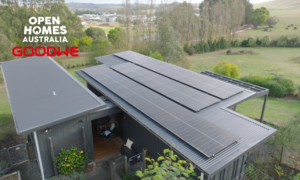The pandemic is still well and truly present in our communities, posing threats across our economy and presenting us with new challenges every day. The good news is that the curve is flattening, so long as we remain vigilant, respectful of social distancing and do our part for the crisis. And within this approach is a whole new opportunity for Australia – the ability to continue pushing renewable energy and using coronavirus as a means to fast-track progress.

Remember the 2020 bushfires?
Back in January, New South Wales saw the most devastating season of fires in the state’s history. We were already on the hard road of recovering from that when the pandemic hit.
Just a few months ago, climate change was our biggest concern and priority, and right now, despite the shift in focus towards the pandemic, we still need to keep this thought in mind. Australia’s progress towards innovations and support for renewable energy (to curb climate change) is crucial for preventing disasters like the bushfires from occurring to that scale again is key to our future success as a nation.
We saw over 3000 homes destroyed, wildlife threatened and killed, and 33 lives lost. Beyond this, millions of hectares of land burned to a crisp.
So yes, we need to remain respectful and vigilant about COVID-19, but we must not forget about where we’ve come from in 2020 as well. And the ability to recall this will be the key to continuing with our positive efforts towards renewable energy, climate change action and a brighter future for Australia – all with the pandemic becoming our chance to kickstart these initiatives.
Why disruption is an opportunity for renewable energy
Of global carbon emissions, Australia creates about 1.5 per cent of the total. Our fossil fuels exported overseas (mostly to India and China) make up a further 3.6 after they’re processed and burned.
Experts say that reducing carbon emissions will put Australia ahead of the game in terms of recovering from the pandemic and initiating an effective economic recovery strategy.
Professor Mark Howden of Climate Change Institution at ANU said the opportunity remains in the fact that the virus has offset all of the pollution created from the bushfires and droughts.
“The droughts and the fires and the smoke haze across major cities have dissipated with the arrival of COVID-19,” he told BBC. “And clearly the momentum for change in relation to the climate here in Australia has dissipated quite considerably too.
“When you have significant disruption like this, it does give you an opportunity to move forward on a different trajectory from the one you’re on previously.”
The raw fact about climate change and fire risk
There’s always going to be arguments about the correlation between climate change and the unexpected severity of the fire season from 2020. Some parties will never seek mutual agreement on the cause and effect of these circumstances.
But what we do know is that climate change boosted Australia’s bushfire risk by a minimum of 30 per cent – and that’s someone we now have an opportunity to prevent from happening again.
As warned by Geert Jan van Oldenborgh of the Royal Netherlands Meteorological Institute in De Bilt, the fire prevention system in Australia is typically well-prepared for disasters like this. However, it was pushed to the limits of “what it could handle”, and resources/volunteers were unable to cope with the demand.
“As the world warm, these events will become more likely and more common,” he told BBC. “It’s not something that we are ready for.”
RELATED: Could renewables be the answer to COVID-19 economy recovery?











































